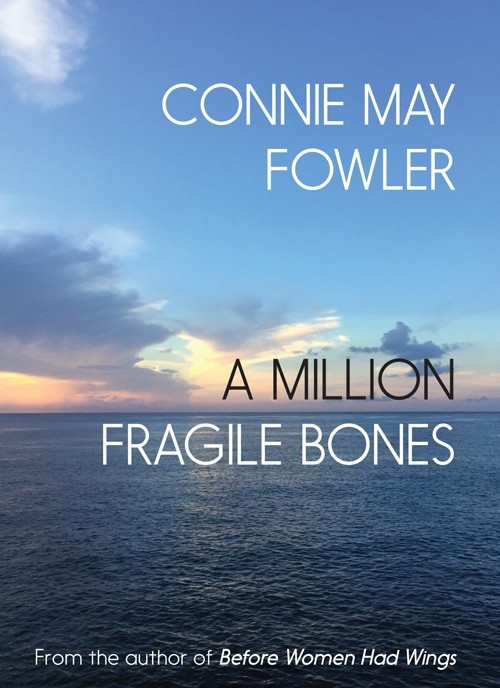I seem to have this irrational fear of scarcity when it comes to great novels. I keep worrying I will run out. Obviously (and thankfully!) this will never happen, but then again there are certain authors I really love reading almost without fail… and so I parcel out their books to myself very sparingly, because I dread that day when I will have read the author’s last book. I should get over this habit because it has prevented me from reading a lot of great books. I should remind myself that if a book is truly awesome, I can read it more than once. But, for now, there are a few authors I have faith in and I take some comfort in knowing that a few of their books are waiting for me. Donna Tartt, for instance—I loved The Little Friend and The Goldfinch, but keep saving The Secret History for a rainy day. Haruki Murakami, who is thankfully prolific, and I’ve read at least a half dozen of his novels, but need to prevent myself from always going straight to his shelf when it’s time to choose a new book. Virginia Woolf, because wow. Michael Ondaatje, for the same reason. And then there is Ernest Hemingway…
I often run into resistance when I mention Hemingway. I see different reasons why not everybody loves his writing; some people think his vocabulary is too small, his words aren’t big enough, or his sentence structures are too simple. Others are fine with all that, but think his characters aren’t fleshed out enough or that the plots aren’t thick enough. Many different reasons, and you could say there is some literal truth to all of these statements… except really all that is missing the bigger picture. Hemingway does a ton of amazing things that happen beneath the surface. You might see three or four short, simple sentences and be unimpressed, but it’s only because you’ve neglected to notice the subtle friction arising between them. Lamenting the lack of bigger words, you fail to realize that bigger words would only stilt or water down the narrative drive. And you might think a character or plot are flat and nondescript, but then you are failing to read between the lines.
All of that is only preface to my saying that this artistry fails in The Garden of Eden. The simple sentences and simple words have nothing behind them here, and no friction between them. The straightforward language seems blunt and empty. The characters have no life off the page and fall flat even when they are taking actions that should be evocative.
This is a terrible shame, because I picked up the novel with high hopes, seeing that its focus was bisexuality, which I didn’t know Hemingway had written about so openly. So I was curious. Coupled with that was an upbeat blurb on the novel from James Salter (one of the writers whose books I’ve exhausted and wish there were more of). But what happens in The Garden of Eden is that the words fail. I had a hard time identifying the story and engaging the characters. I couldn’t detect the friction below the surface and between the sentences. It was a very hollow read, almost like reading some novice trying to mimic Hemingway. The short words and sentence structures were there, but they all failed. Even the sweeping, multiple compounded simple sentence landscape descriptions felt hollow and evoked no images. And with all that failing, the bisexuality and gender fluidity scenes felt like a farce. Catherine tells David that she will be the boy and he will be the girl. Other times they are both boys. They get identical bob haircuts, and Catherine dresses like a man.
As I was reading, my impression was that Catherine was a true genderqueer and David was just sort of going along for the ride. But Catherine had no real depth. She was a flat character. They both fell flat. Her actions were simple and straightforward, mostly via dialogue, and lacked meaning and complexity. Then another woman comes into the picture and they both fall in love with her. In some ways, she is more interesting than both David and Catherine. She seems very much alive and her character jumps off the page more than the main characters, which is probably how most writers convey falling in love. Then the slow three-way romance begins, but it is very spare and hollow. Catherine enjoys being the man for this new woman, but also shows some trepidation and excitement to be the woman for her also. Somewhere along the line, I just couldn’t go on reading. I discovered a film version and decided to try it, but it was a faithful adaptation—meaning that it, too, seemed hollow and untrue.
It is said that Hemingway worked on this story for 15 years and couldn’t get it to meet his expectations. I’d like to believe that Hemingway was expressing his sensitivity and personal interest in bisexuality and gender fluidity. I’d like to believe he wanted to express a part of himself that remained unwritten. I’d like to believe that he was struggling not only against the confines of what was acceptable in his era, but also the confines of his personal experience as a writer and the gender roles that he had always previously employed. But I can only speculate at his motivation because this novel is simply not fully realized. Here is a writer known for plunging under icebergs barely dipping his toes with trepidation beneath the surface. Decades after his death, they cobbled this book together and released it as a novel. Knowing this, I feel the criticism is more justly directed not at Hemingway, but at this book’s editor and publisher. I choose to believe that if Hemingway had lived another ten years, this might have become something brilliant.


